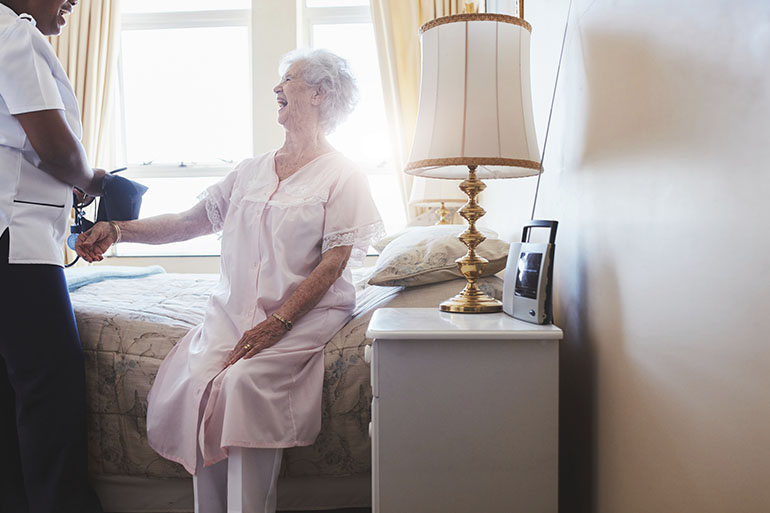People over 65 who live alone were more likely to describe their health as excellent or very good than were seniors who live with others, according to a study exploring connections between older Americans’ health status and their living arrangements.
Conversely, older people living with others — whether related or unrelated to them — were significantly less likely to call their health as excellent or very good, researchers reported recently in the Journal of Applied Gerontology.
That may be because when seniors encounter serious health problems and mounting physical difficulties, they often stop living by themselves and choose to live with others for support, they speculated.
But the researchers said they drew no conclusions about whether keeping a solitary household in old age leads to a longer life.
In fact, living alone wasn’t superior in every way for people over 65, according to the study. Those who share a home with a spouse or partner were less likely to report serious psychological distress than were older people without companions, a finding that meshes with prior research.
“Their physical health was better living alone rather than with a spouse or partner, but the mental health from living alone was worse,” said Judith D. Weissman, the study’s lead author. She is an epidemiologist and research manager in the Department of Medicine at the New York University School of Medicine.
Mental health affects physical health and that’s why older adults’ psychological wellbeing deserves more attention, she said.
“From a policy standpoint, it indicates we may have to provide either emotional or mental support for seniors living alone,” Weissman said.
The study was based on data for 41,603 adults 65 and older collected in six years of federal surveys. Researchers studied people living alone, with a spouse or partner, with others related or unrelated, or living only with children.
Researchers also discovered the relationship between living arrangements and health differed for men and women.
For instance, older men living alone were less likely to report having two or more chronic health conditions — such as cancer or diabetes — than counterparts in households with spouses or partners. They were also less likely to report their health as fair or poor.
The opposite was true for women on both counts: Those on their own were more likely to report multiple health conditions than the ones with spouses or partners. Yet, they were also more likely to describe their health as excellent or very good.
“This apparent paradox may be difficult to untangle due to the varied life experiences that lead women to live alone,” researchers said.
For example, they said, older women are more likely to be widowed and after becoming widows, they tend to live alone.
KHN’s coverage of aging and long term care issues is supported in part by a grant from The SCAN Foundation.







